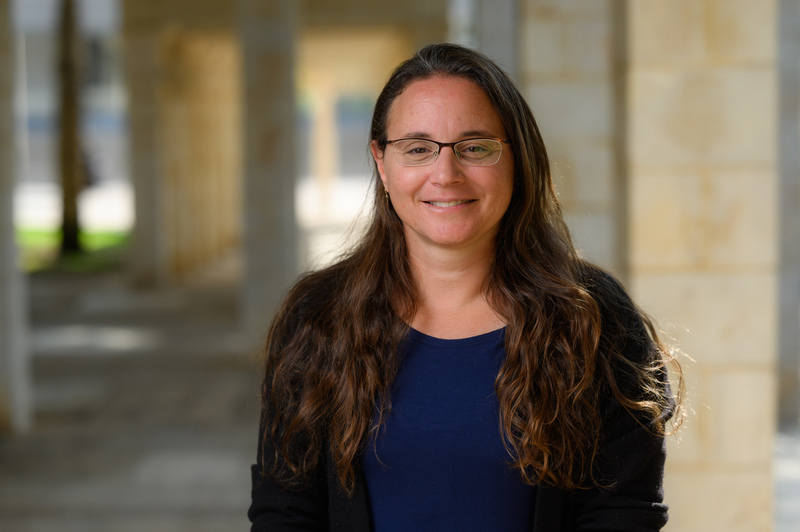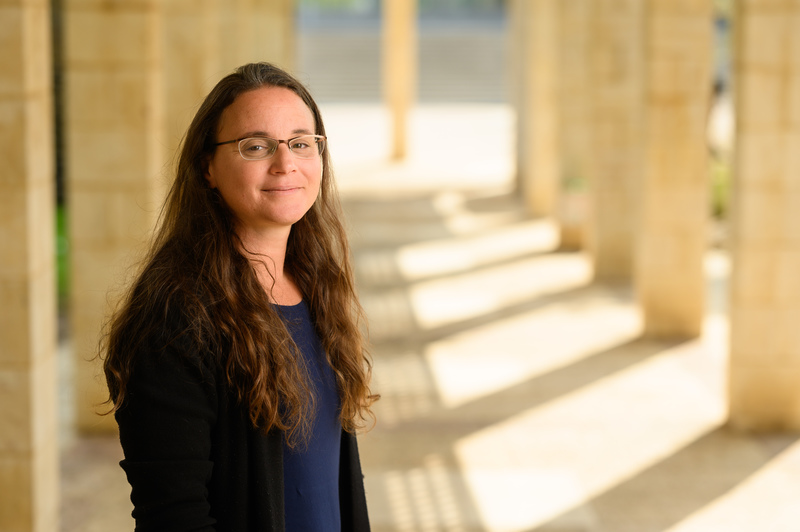French Associates Institute for Agriculture & Biotechnology of Drylands
The Jacob Blaustein Institutes for Desert Research

My life before BGU:
I was born and grew up in Carmiel. During my military service, I was a tour guide for the Israel Nature and Parks Authority in Mitzpe Ramon. After that, I lived in the Ein Gedi field school and worked as a park ranger at the Israel Nature and Parks Authority.
My academic track:
I studied biotechnology and environmental studies at Tel-Hai Academic College for my BSc. I got my master's degree from the Department of Geography and Environmental Development at BGU and my PhD in remote sensing and landscape ecology at the Jacob Blaustein Institutes for Desert Research in Sde Boker. Then I moved to California, where I was a postdoc in Prof. Gregory Asner's lab at the Department of Global Ecology, Carnegie Institution for Science, Stanford University.
My employment track:
In 2018, I established the Agro-Informatics and Remote Sensing Laboratory at the Institute of Agricultural Engineering, Agricultural Research Organization, Volcani Center. In October 2022 I started at my new lab at the French Associates Institute for Agriculture and Biotechnology of Dryland, the Jacob Blaustein Institutes for Desert Research in Sde Boker.
Why BGU?
My family and I live in the Negev, and I got my doctorate at the Jacob Blaustein Institutes for Desert Research at BGU, so returning to the University after so many years feels like coming back home.
My research:
I am a remote-sensing scientist who uses computing and information technology to study soil-plant-environment processes and interactions. My research has focused on identifying and quantifying spatial and temporal patterns in soil and plant responses and their interactions with biotic and abiotic stress. Agro-informatics research is a new multidisciplinary field of knowledge that combines agriculture, food, and the environment with mathematics, computer science, and engineering. Modern technology makes it possible to receive big data from sensors located in the field, data collection, and remote sensing platforms. All this data gathering enables us to learn and develop a decision support system for managing natural and agricultural systems more sustainably and improving resource use efficiency. Such studies are increasingly essential in drylands, where resources are limited, and extreme contrasts exist between natural and human-induced ecosystems. In relation to plant studies, I attempt to answer questions such as: how will climate change or human activity affect the degradation of natural and agricultural systems? How will these changes affect plant resistance, physiology, and phenology on a regional scale? which species and cultivars will best adapt to these changes? How will climate change affect the incidence of diseases and pests, and how severe will their spread be on a regional scale? How should we manage resources application in agricultural systems, such as irrigation, fertilization, and pest control? These may seem broad and abstract questions, but finding answers is extremely important, especially given the challenges we are facing in terms of climate change and anthropogenic activity. The lab's website
An insight from my research:
Cross-scale processes must be studied to understand complex phenomena from the individual plant level to the whole ecosystem. The only tool available today enabling cross-scale research is remote sensing. A combination of remote sensing data, advanced technologies, multiple sources of information, and the development of learning algorithms, make it possible to identify connections and patterns that could not be found otherwise.

Something that doesn't appear on my CV:
I hike whenever I can, mostly outdoors in nature. The environment-nature-human interaction has always interested me.
A source of inspiration:
My postdoctoral advisor, Prof. Greg Asner, was a source of inspiration for conducting exceptional, groundbreaking research and thinking outside the box. If I had to choose one book, it would be Meir Shalev’s In His House in the Desert.
When I grow up:
As a child, I was always interested in space. Now I look at the world and study its processes from the outside.
If I wasn’t a researcher, I would...
I cannot think of something else that I would like to do
In Brief:
» Fauda or Big Brother? Fauda
» Yoga or CrossFit? Both
» Hapoel or Maccabi? Neither
» Ravid Plotnik or Noa Kirel? Tuna
» Steak or tofu? Both
» Trekking or the spa? Trekking, absolutely
» Car or train? Bicycle or on foot
» Classical Europe or India? Both
» Ocean or pool? Ocean
» Night or morning? Morning
» Winter or summer? Winter
» City or country? Country
» Film or play? Both
» Phone call or text message? Face-to-face conversation
» Savory or sweet? Sweet
» Android or iPhone? Android
» Cat or dog? Both
» Facebook or Twitter? Neither